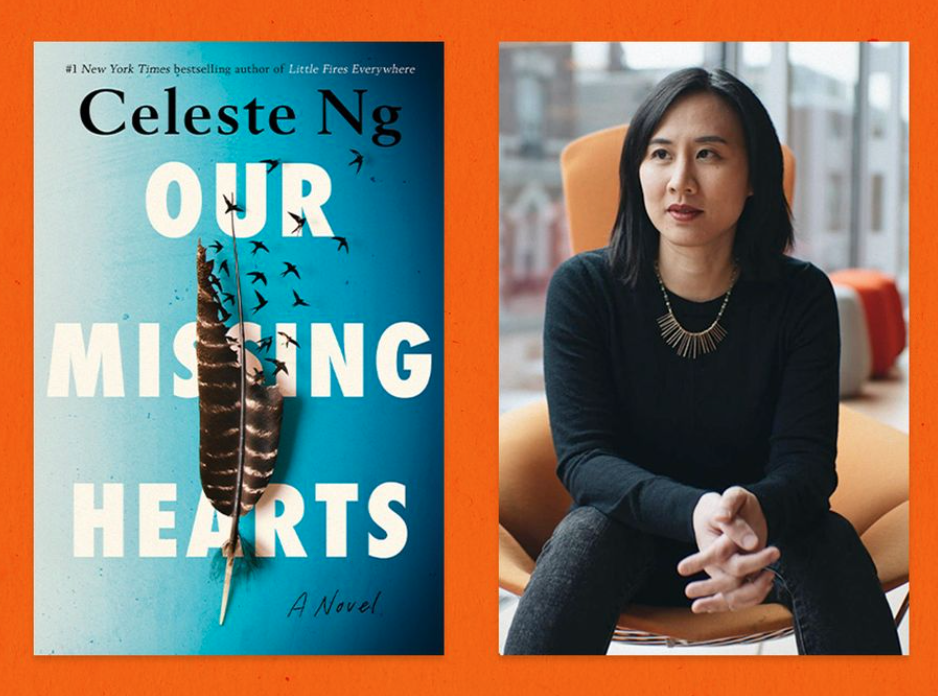
If you've met me, you've heard me talk about my love of romance novels. I don't generally read any speculative fiction, but loving a happily-ever-after doesn't mean I don't find fascinating the "what if?" trope of speculative fiction. Since I first read it in middle school, I've loved that Ray Bradbury short story about stepping off the path in the past to squash the butterfly. I also ate up that Philip Roth novel about what the world would be if Charles Lindbergh had beaten Franklin Roosevelt in the presidential election of 1940. Today, I'm veering from my usual extolling-romance-novels script to talk about a what-if novel that shook me.
Having read Little Fires Everywhere and taught Everything I Never Told You, I was excited when my friend and writing partner (Thanks, MC!) recommended Celeste Ng's newest book, Our Missing Hearts. Little did I know how powerful I would find the book. I won't give anything away about where the novel leads, but I will tell you some of the things I liked about it. If you're going to read it no matter what, and don't want spoilers even for the first few pages or general topics covered, maybe you should go read the book and then come back here to see if you agree with my thoughts.
The central what-if of the text has to do with people's need to scapegoat. I imagine that when Ng heard our ex-president's calling COVID by an unkind, country-named slur, she thought about where that unhelpful thinking leads. She must have been considering what would happen if people embraced that kind of blame-assigning and racism during a longer pandemic than the physical one.
From that central kernel, she crafted a love story for the bond between parents and their children, for the importance of public libraries and the amazing people who work in them, and for words themselves. Ng demonstrates how poetry can mold our minds and stories can still us, unite us, recall us, and shape us.
The story, set in a not-entirely-different-from-our-world's Cambridge, MA, follows the experiences of a twelve-year-old boy as he navigates his biracial identity with his present white-American father and his missing Chinese-American mother.
Ng's stunning prose reads like the poetry she extols. The book provides a call-to-action, showing what will happen if those of us not targeted by hatred and racism do nothing to slow its roll. No, that's not quite right, so I'll rephrase, feeling the blame of this next line the more I think about it. The book provides a call-to-action, showing what has already happened, what we who have not been directly hurt by xenophobia have let happen by doing nothing to slow the roll of hatred. The later phrasing makes me want to do better.
I don't want to give away anything specific about the book, so I'll stop here. Get a copy to see what you think. Then, please come back online to share a comment, or, if you're inspired, go do something to stop the spread of xenophobia, racism, and hatred, and then come back here to share your ideas about how to do that.